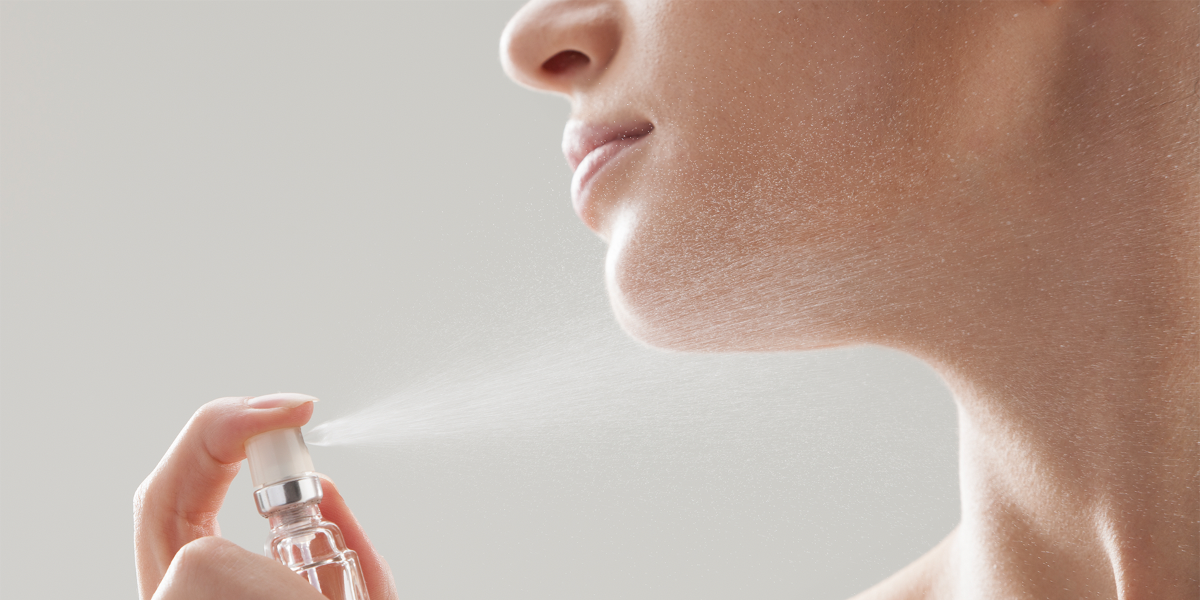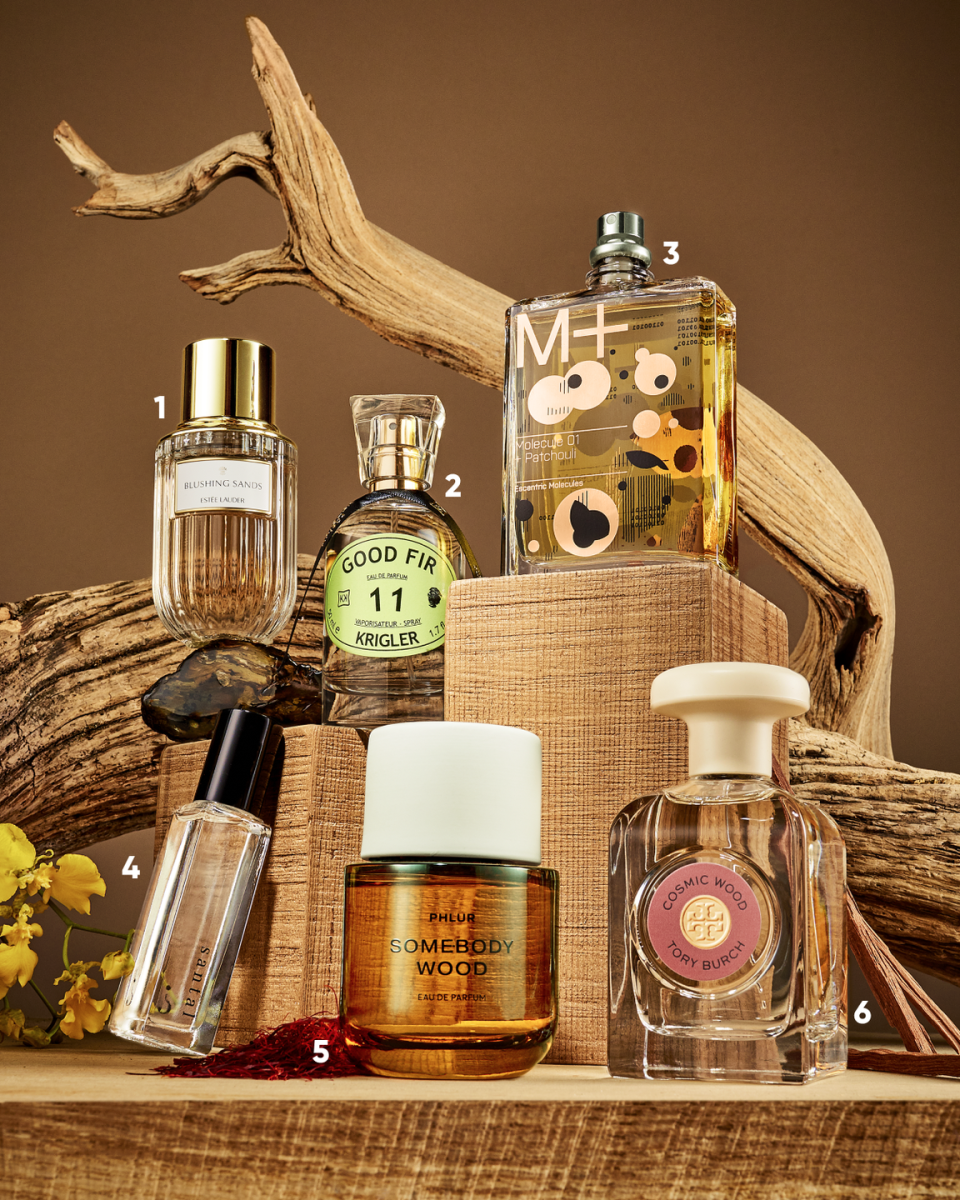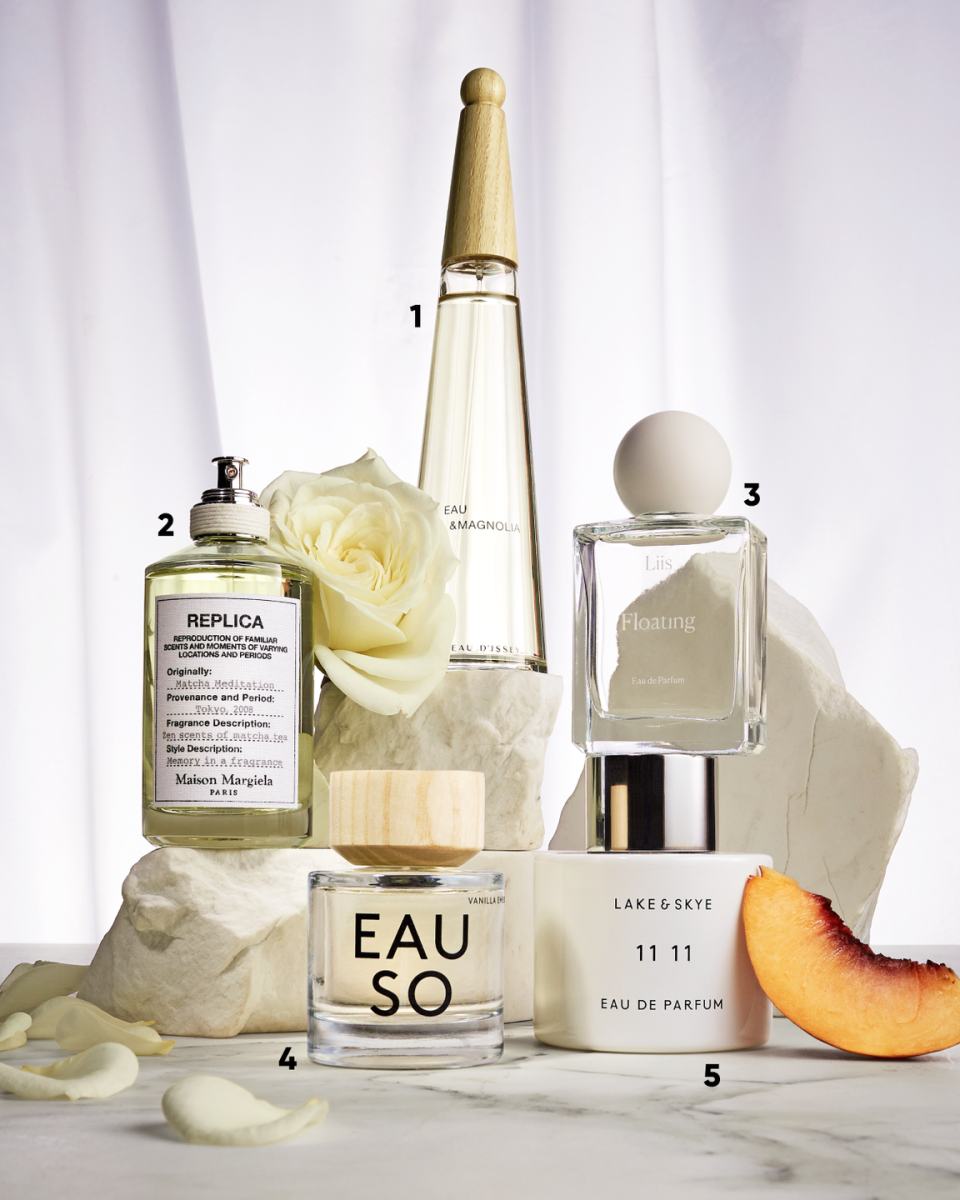These Scents Can Actually Calm You Down

"Hearst Magazines and Yahoo may earn commission or revenue on some items through the links below."
When Clinique launched the fragrance Happy back in 1997, people in the beauty industry turned up their noses at a perfume designed to lift your spirits. This was the era when fragrance campaigns were all about being edgy and cool or seductively captivating, so the perky premise of spritzing on joy was initially seen as kind of hokey, and insiders doubted that the scent would catch on.
Of course, Happy proved all the skeptics wrong, becoming a huge success that remains a cult favorite to this day. Its enduring legacy might have something to do with the fact that it was the first perfume created with “mood mapping,” a technique originally developed by taste and scent manufacturer International Flavors & Fragrances that identifies how different aromas affect our emotions. Clinique’s iconic citrus-floral blend doesn’t just smell vibrant—it’s engineered to make you feel vibrant whenever you get a whiff. What began as a novelty approach to scent creation 25 years ago is now an integral focus of the fragrance industry. Many of the newest perfumes coming out contain notes that have been shown not only to help elevate your mood but also to soothe your soul, calm you down, or make you feel more grounded—feelings we could all use more of in these stressful times.
“During the pandemic lockdown, scent became a pivotal source of calm and stimulation for many of us, from the comforting smells of cooking to transporting our minds elsewhere through scented candles and home fragrance,” says Dana Schmitt, a perfumer for Givaudan, one of the top perfume and flavor manufacturers worldwide. “This heightened our appreciation for scent as a mood catalyst. Now that we’re out and about again, we’re still using personal fragrance to achieve this effect.”
The Science
If the notion of misting on good vibes sounds a bit far-fetched, science suggests otherwise. Data shows that smell triggers 75 percent of our daily emotions, which might explain why perfume—which we used to wear primarily to smell good for others—is increasingly becoming part of our self-care. (Though one could argue that a spritz that cheers you up is also a tool of attraction, since we’re more drawn to positive, upbeat people.)
A recent poll by market research firm The NPD Group found that three out of four fragrance consumers say scent helps lift and enhance their mood, so perfume companies are incorporating aromachology—the study of how aromas impact our behavior and feelings—into the development of new scents, using tools and resources far more advanced than what was available when Clinique Happy was created in the ’90s. Givaudan and Firmenich, another leading global producer of fragrances and flavors, have in-house neuroscience teams that study the specific emotions triggered by certain smells. They also have technologies that allow them to identify and recreate complex, highly specific scent combinations that help increase positive feelings and reduce negative moods in people. These technologies have the ability to identify and capture molecules in the air in different stress- lowering environments, such as a forest or the seaside. Perfumers can then duplicate the molecular composition of those natural atmospheres and bottle it up for your misting pleasure.
Unlike aromatherapy (which addresses physical health with the smells of single- note oils and raw extracts), functional fragrances, as they’re often called, are sophisticated synthesized perfumes that stimulate an emotional response—a sort of blend with benefits, if you will. To be clear, they aren’t medicine, but “these fragrances combine evocative, familiar notes that bring about a sense of pleasure and well-being when you wear them,” explains Alexandra Monet, a perfumer for Firmenich.
These emotional responses occur because of what scientists call “olfactory bonding,” which refers to the unique way in which our brains are wired to smell. It’s why, of all five senses, scent has the strongest link to memory and emotion. While our other senses process information indirectly, sending it through various touch points before it’s interpreted by the brain, smell messages get routed directly to the areas of the brain that regulate emotion, creativity, and memory.“This is why when you smell something, you often have an immediate, visceral response and can instantly recall a related feeling or memory,” says Schmitt.
All this high-tech analysis and neuroscience culminates in one simple goal: to design pleasing scents that make us feel a bit more joyful, relaxed, grounded, or invigorated.
To Feel Serene and Balanced, Try Rich, Earthy Woods
“Based on years of research that looked at how fragrances trigger the areas of the brain associated with certain emotions, we found that woody scents and creamy musks promote a sense of calm and relaxation, particularly for women,” says Monet. “Earthy fragrances that contain notes of roots, seeds, and woods tend to make people feel connected to the earth, which in turn helps them feel centered and grounded.” Let these blends work their magic on you.

To Feel Happier and Reduce Anxiety, Try Airy, Water Florals
“In our research, we discovered that fragrances that evoke an open horizon and fresh, clean air, like dewy green and watery notes along with luminous florals, help people feel uplifted and less stressed,” says Monet. Taking in the smells associated with quiet, peaceful environments where you float away sparks the same emotions we experience when we’re physically in those places. Look for perfumes with essences of lush, leafy gardens, soft fruits and flowers, and misty green landscapes to boost your mood and ease your worries—here are a few to try.

You Might Also Like
